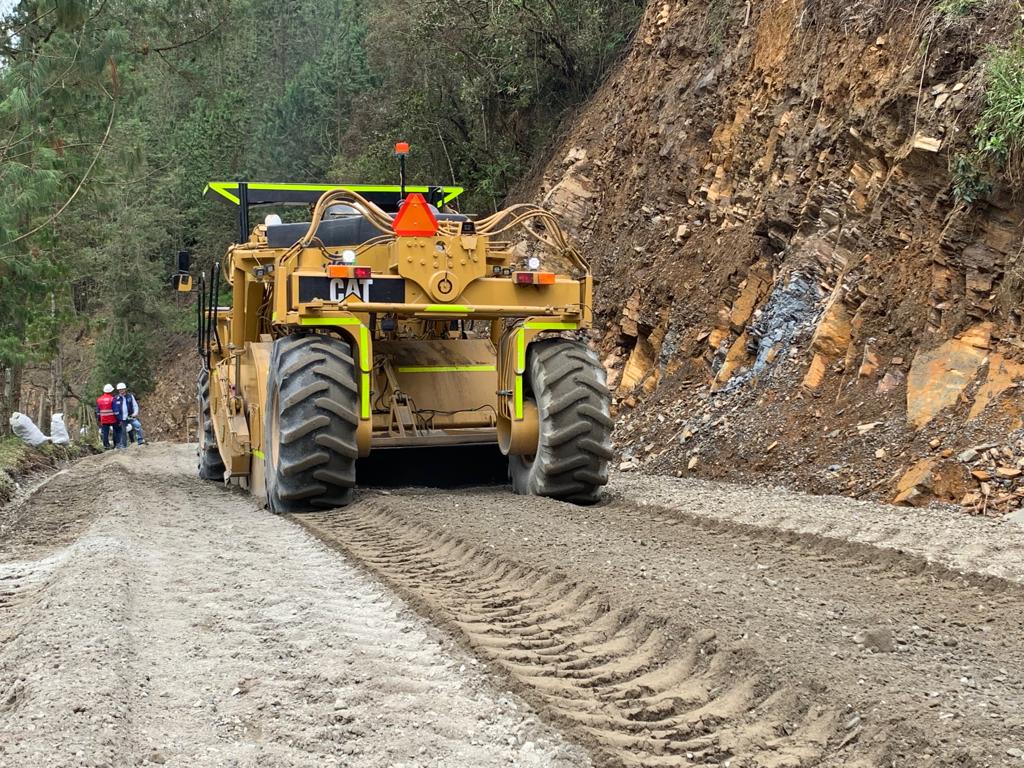Premium Bitumen and Asphalt Products and Suppliers in Burkina Faso
Premium bitumen and asphalt products in Burkina Faso often play the understated yet pivotal role in the construction sector, somewhat akin to an unsung hero amidst more visible materials like concrete and steel. Yet, it's their unparalleled durability and adaptability that carve a niche for them in the realm of road construction and maintenance. This unique character of bitumen and asphalt sets them apart in the wide spectrum of construction materials, offering a distinct advantage that positions these products as indispensable in the infrastructure development of Burkina Faso.
Key variants of these materials include Penetration Grade, Oxidized Bitumen, and Polymer Modified Bitumen (PMB), each known for their specific applications and benefits. Single Grade Bitumen also stands out, providing a versatile yet high-performing option for various construction needs. Diving deeper, each type of bitumen and asphalt product brings its own set of characteristics, manufacturing processes, environmental resilience, and suitability for different construction scenarios.
The ensuing sections will delve into these facets in more detail, offering a comprehensive understanding of what makes premium bitumen and asphalt products critical to the advancement and sustainability of Burkina Faso's infrastructure.
What is premium bitumen and asphalt?
Premium bitumen and asphalt are foundational materials in the construction industry, particularly for road paving and maintenance tasks. Bitumen is a dark, sticky substance derived from crude oil, known for its binding properties. It acts as a glue, holding together the aggregate particles in asphalt.
Asphalt, meanwhile, is a mixture that combines bitumen with aggregates like sand, gravel, and stones, creating a durable surface ideal for roads. The distinction of being premium lies in the quality and performance of the bitumen and asphalt. Premium products are characterized by their purity, consistency, and enhanced features such as superior adhesive strength, resistance to environmental factors like water and temperature fluctuations, and the ability to withstand heavy traffic without significant wear and tear.
These properties are crucial for building and maintaining roads that are long-lasting and resilient, especially in Burkina Faso's varied climate and terrain.
Importance in Burkina Faso
In Burkina Faso, the role of premium bitumen and asphalt is crucial for two primary reasons: climate resilience and road network expansion. The country's diverse climate, characterized by periods of intense heat and heavy rainfall, necessitates the use of road materials that can endure such environmental challenges. Premium bitumen and asphalt, known for their enhanced durability and weather resistance, are perfectly aligned with these needs, ensuring roads can withstand the elements and remain in good condition throughout the year.
Moreover, as Burkina Faso aims to enhance its economic growth and connectivity through road network expansion, the demand for high-quality construction materials has surged. Implementing premium bitumen and asphalt in road construction projects ensures that new roads are not only built to last but also require less maintenance over time. This strategic approach to infrastructure development supports both the immediate and long-term transportation needs of the country, making it a vital component in Burkina Faso's journey towards sustainable growth and development.
Climate Resilience
In Burkina Faso, climate resilience is a paramount concern, making premium bitumen and asphalt indispensable. These materials stand up to the country's extreme weather, from the intense heat of the dry season to the heavy downpours of the rainy season. Their superior ability to resist temperature fluctuations and water damage ensures the road infrastructure remains intact and operational, significantly reducing the frequency and cost of maintenance.
Road Network Expansion
The strategic expansion of the road network is vital for Burkina Faso's continued economic development and connectivity. Premium bitumen and asphalt are at the forefront of this expansion, providing a robust foundation for roads that can sustain increased traffic and heavier loads. Utilizing these high-quality materials ensures the longevity and sustainability of the infrastructure, facilitating smoother transport and trade routes that are essential for the nation's growth and the well-being of its communities.
Key characteristics
The superiority of premium bitumen and asphalt in Burkina Faso's infrastructure projects is underscored by three core characteristics: high-grade materials, enhanced adhesive properties, and resistance to deformation.
- High-grade materials guarantee the durability and longevity of roads, enabling them to withstand the harsh climatic conditions prevalent in Burkina Faso without significant deterioration.
- Enhanced adhesive properties ensure a strong bond among the aggregate particles within the asphalt, crucial for the long-term integrity and cohesion of road surfaces.
- Resistance to deformation is essential for maintaining road quality under the stress of heavy traffic and loads, preventing common issues like cracking or rutting and ensuring safe, smooth transportation routes.
These characteristics collectively contribute to the reliability and performance of premium bitumen and asphalt, making them indispensable in the construction and maintenance of resilient road networks in Burkina Faso.
High-grade Materials
High-grade materials form the cornerstone of premium bitumen and asphalt's effectiveness in road construction within Burkina Faso. These materials are specifically chosen for their durability and longevity, enabling roads to withstand the challenging climate without deteriorating prematurely. The use of such high-quality components is essential for ensuring that the infrastructure can endure for years to come.
Enhanced Adhesive Properties
The enhanced adhesive properties of premium bitumen and asphalt are critical for the cohesion and structural integrity of road surfaces. This superior bonding capability ensures that the aggregate particles are securely held together, greatly reducing the likelihood of surface disintegration and prolonging the lifespan of roads.
Resistance to Deformation
A key feature of premium bitumen and asphalt is their resistance to deformation. This characteristic ensures that roads can bear heavy traffic and significant loads without showing signs of cracking, rutting, or other forms of damage. Such resilience is indispensable for maintaining smooth and safe transportation routes across Burkina Faso, regardless of the volume of traffic or environmental conditions.
Identifying top suppliers
To pinpoint the leading suppliers of premium bitumen and asphalt in Burkina Faso, several critical aspects must be considered: compliance with international standards, extensive product offerings, and positive feedback and reputation.
- Compliance with international standards is crucial, as it assures that the products meet rigorous quality and safety benchmarks, making them reliable for Burkina Faso's varied construction projects.
- Suppliers with extensive product offerings demonstrate versatility and the capacity to cater to a wide array of project needs, from large-scale roadworks to minor patch-ups.
- Positive feedback and a strong reputation in the industry underscore a supplier's dedication to excellence and customer satisfaction, indicating their proven track record in delivering superior bitumen and asphalt solutions.
Considering these factors is essential for selecting suppliers that can consistently provide high-quality materials, ensuring the success and longevity of infrastructure projects in Burkina Faso.
International Standards Compliance
International standards compliance stands as a testament to a supplier's dedication to quality. Suppliers meeting these rigorous benchmarks not only ensure their bitumen and asphalt products are top-notch but also affirm their suitability for the demanding conditions of Burkina Faso's infrastructure projects. Compliance with these standards is crucial for materials that will be used in constructing durable and safe roads.
Extensive Product Offerings
Having extensive product offerings signifies a supplier's capability to cater to a broad spectrum of construction needs. This variety allows for custom solutions tailored to specific project requirements, from addressing the unique climate challenges of Burkina Faso to accommodating heavy traffic loads. Suppliers with a diverse range of products provide the flexibility needed to optimize road construction and maintenance.
Positive Feedback and Reputation
Positive feedback and a strong reputation in the industry reflect a supplier's proven track record of excellence. Suppliers who are consistently praised by their customers and peers are likely to offer high-quality bitumen and asphalt, contributing to the successful completion of construction projects. A stellar reputation is indicative of a supplier's commitment to delivering superior materials and customer satisfaction.
Leading suppliers
In Burkina Faso, the forefront of premium bitumen and asphalt supply is dominated by a dynamic mix of local production companies and international importers. Local entities, like Société de Bitume Burkina, are pivotal, capitalizing on their deep understanding of Burkina Faso's unique environmental and construction requirements. On the other hand, international importers, such as the renowned Pro-Road Companies, introduce a global perspective and a diverse array of high-caliber products to the local market.
Together, these suppliers are instrumental in addressing the burgeoning needs for robust and efficient road construction materials, ensuring a blend of local insight and international excellence in every project undertaken in Burkina Faso.
Local Production Companies
Local production companies are the backbone of Burkina Faso's bitumen and asphalt supply chain. They are adept at producing materials that are finely tuned to the nation's specific environmental and infrastructural demands, offering essential support to local construction endeavors.
Société de Bitume Burkina
Among these, Société de Bitume Burkina emerges as a key player, celebrated for its dedication to quality and deep insights into the local market's needs. This enterprise has carved a niche for itself as a trusted provider of premium bitumen and asphalt, playing a pivotal role in paving the way for Burkina Faso's road development and maintenance projects.
International Importers
International importers like the Pro-Road Companies, bridge the gap between global standards and local requirements, introducing a diverse array of bitumen and asphalt products to Burkina Faso. Their contribution is vital in diversifying the supply base and ensuring access to materials that adhere to international quality benchmarks.
Pro-Road Companies
Pro-Road Companies emphasize the global expertise and product excellence that international importers bring to Burkina Faso. With its vast experience and commitment to research and development, Pro-Road Companies stands out for providing innovative and high-quality bitumen and asphalt solutions that meet the rigorous demands of the country's growing infrastructure needs.
Cost factors
The pricing of premium bitumen and asphalt in Burkina Faso is shaped by a trio of critical elements: crude oil market trends, import and transport costs, and the supply vs. demand equilibrium. Variations in the global crude oil market have a direct ripple effect on bitumen prices due to its petroleum derivation.
Moreover, the expenses tied to importing and transporting these materials into and across Burkina Faso can substantially elevate their overall costs, particularly for products procured from overseas. Lastly, the supply and demand dynamic is pivotal in price determination. With Burkina Faso's ambitious road network expansion, the escalating demand for superior bitumen and asphalt, against a backdrop of limited local production, potentially drives up prices.
Grasping these factors is vital for accurate budgeting and strategic planning within the construction domain.
Crude Oil Market Trends
Crude oil market trends play a significant role in shaping the cost of premium bitumen and asphalt. Given that bitumen is derived from petroleum, fluctuations in global oil prices directly impact its pricing. An uptrend in crude oil markets typically translates to increased costs for bitumen and asphalt, making these trends an essential consideration for construction budgeting.
Import and Transport Costs
Import and transport costs are critical components of the final pricing structure for bitumen and asphalt in Burkina Faso. These expenses include the cost of importing the materials into the country and the subsequent distribution to construction sites. The logistical challenges and costs associated with transporting materials, particularly from international sources, can significantly inflate the overall cost of construction projects.
Supply vs. Demand
The balance between supply and demand is a crucial factor in determining the price of bitumen and asphalt. With Burkina Faso's ongoing infrastructure expansion, the demand for high-quality construction materials is on the rise. Should the supply fail to meet this increasing demand, prices are likely to surge.
Conversely, an oversupply could lead to reduced prices. This dynamic underscores the importance of understanding market conditions for effective cost management in the construction sector.
Sourcing challenges
Securing premium bitumen and asphalt in Burkina Faso involves navigating through a maze of regulatory hurdles and ensuring quality verification. The intricate web of import regulations, compliance with standards, and adherence to local policies significantly influences the ability to efficiently source high-quality materials. Moreover, the critical task of verifying the quality of bitumen and asphalt presents its own set of challenges.
With a myriad of suppliers offering various grades, identifying those that meet the stringent requirements of specific construction projects demands rigorous testing and evaluation. These sourcing challenges underscore the need for a strategic approach, highlighting the pivotal roles of dependable suppliers and robust quality control protocols.
Regulatory Hurdles
Navigating regulatory hurdles is a significant challenge in the procurement of premium bitumen and asphalt in Burkina Faso. Dealing with intricate import regulations, ensuring compliance with both international and local standards, and overcoming bureaucratic red tape can delay access to necessary high-quality materials. A thorough understanding of the regulatory environment is essential to facilitate seamless sourcing and project execution.
Quality Verification
Ensuring quality verification stands as a crucial yet complex task in sourcing bitumen and asphalt. Identifying the appropriate grades and confirming their suitability for specific construction projects involves detailed testing and rigorous assessment. Implementing strict quality control measures is key to ensuring that the sourced materials will uphold the standards required for building resilient and long-lasting infrastructure.
Future industry trends
The bitumen and asphalt industry in Burkina Faso is on the cusp of transformation, driven by several key trends: the shift towards eco-friendly materials, the rise of bio-bitumen, the adoption of smart paving technologies, and the development of temperature adaptive materials. These innovations are set to redefine the landscape of road construction by prioritizing sustainability, efficiency, and adaptability.
- Eco-friendly materials and bio-bitumen represent a move towards more sustainable construction practices, offering alternatives that lessen the environmental footprint of road projects.
- Smart paving technologies are poised to streamline the construction process, enhancing precision and reducing the need for manual labor.
- Temperature adaptive materials are designed to cope with Burkina Faso's diverse climate, promising roads that are more resilient to weather-related wear and tear.
These emerging trends signal a future where road construction is not only more sustainable and efficient but also produces infrastructure that stands the test of time and climate.
Eco-friendly Materials
Eco-friendly materials are setting a new standard in the bitumen and asphalt industry, prioritizing environmental sustainability in road construction. These advanced materials minimize ecological footprints by incorporating recycled elements and leveraging renewable resources, paving the way for more responsible infrastructure development.
Bio-bitumen Innovations
At the cutting edge of industry evolution, bio-bitumen innovations introduce a sustainable alternative to traditional bitumen, utilizing organic and non-petroleum based sources. This shift not only reduces reliance on fossil fuels but also heralds a new era of eco-conscious road construction methodologies.
Smart Paving Technologies
Smart paving technologies are redefining construction efficiency, utilizing automation and state-of-the-art machinery to streamline the paving process. These innovations promise enhanced precision, reduced construction timelines, and significant cost savings, while elevating the quality and durability of the finished roads.
Temperature Adaptive Materials
Developments in temperature adaptive materials offer a solution to the challenge of varying climate conditions, ensuring roads can endure and adapt to temperature changes. This technology aims to prolong the service life of roadways in Burkina Faso, maintaining their integrity and safety through seasonal temperature fluctuations.

Contact us to get to work
We have a talented team, the best materials, tools, and equipment at your disposal.

